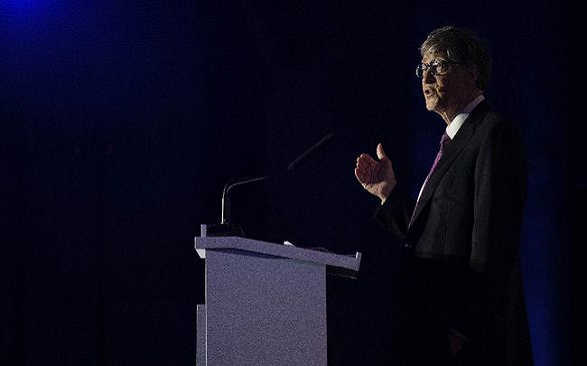Speaking at a TechCrunch program Tuesday, the Microsoft co-founder & billionaire described cryptocurrencies and NFTs as something that’s “100% based on greater fool theory”. This was Bill Gates’s response to the idea that cryptoassets, which he considers overvalued, will increase in price as long as there are enough investors willing to pay more for these cryptoassets.
Obviously referring to the Bored Ape Yacht Club NFT collection, Bill Gates, jokingly, wondered how “expensive digital images of monkeys” would “improve the world immensely”. As far as Bill Gates is concerned, these are overhyped images.
The Greater Fool Theory is the idea that during a market bubble one can profit from buying overvalued assets and selling them at higher prices. This is based on the belief that it will always be possible to get a person who is willing to pay a higher price for the asset. A greater fool does not consider the fundamental value of the asset but speculates. But when the bubble eventually bursts, the overvalued asset declines significantly in a large sell-off. Consequently, getting a buyer becomes difficult—the greater fool ends up being the holder of the asset.
“I’m used to asset classes … like a farm where they have output, or like a company where they make products,” Gates said. Microsoft makes products. Crypto does not.
As for crypto, “I’m not involved in that,” Gates added. “I’m not long or short any of those things.”
Bill Gates isn’t alone. Last month, another billionaire, Chairman & CEO of Berkshire Hathaway, Warren Buffet, described bitcoin as stupid, evil, and that it makes you look bad. As long as bitcoin is neither productive nor valuable, Warren Buffet said if bitcoin were offered to him for $25, he won’t take it. So like Bill Gates, Warren Buffet is not long or short on crypto and NFTs.
Michael Clark, a global digital innovation and technology leader, agreeing with another commenter on Linkedin who disagreed with Bill Gates, responded as follows:

Micheal Lark then points out that “[i]n terms of the actual value, [he] sense[s] this is our .com moment. And we will see the hype protocols burst, reset and then protocols that emerge will be the fabric and infrastructure of web 3.0.” Talk about the real thing after the bubble.
Currently, the crypto market is experiencing a bloodbath, with cryptocurrencies and other virtual assets, including bitcoin, dropping massively. At the time of writing, bitcoin price is about $20,219 and Ethereum is about 1,087 (both down by about 29% and about 37% in 7 days, respectively. According to CoinMarketCap, global crypto market capitalization is currently $899.03 billion, crashing below $1 trillion for the first time since January 2021.
Perhaps if more project developers in the crypto and NFT space focus on use cases of blockchain technology that help to create value and not hype and money doubling, Bill Gates and Warren Buffet may start seeing that crypto and NFTs are not all overhyped. For example, Bitcoin solved the double-spend problem that electronic transactions have faced for years. Same with NFTs, enabling creators to protect and monetize their unique works. Merely longing and shorting may, not for long, shorten the lifespan of an otherwise vibrant industry.
Regulation (and self-regulation) is also critical.
Discover more from Crypto Asset Buyer
Subscribe to get the latest posts sent to your email.





1 Comment
Comments are closed.